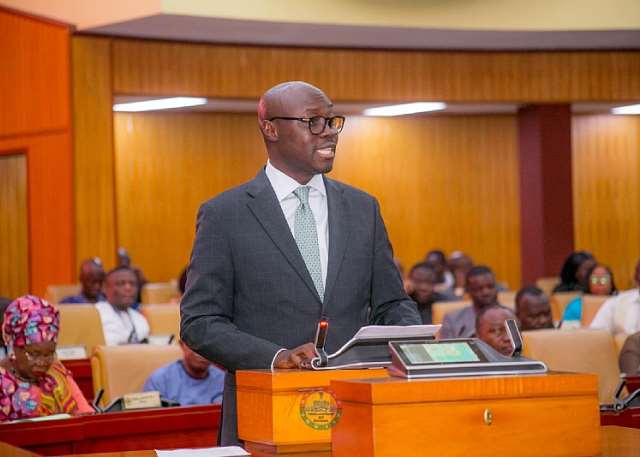The Ghanaian Parliament is set to receive the Mid-Year Review of the 2025 Budget Statement and Economic Policy on Thursday, July 24, 2025, a critical juncture for assessing the nation’s economic performance and charting the course for the remainder of the year. This announcement, delivered by Parliament’s Majority Leader, Mahama Ayariga, signals a key moment of accountability and transparency in the government’s fiscal management. The review, mandated by the Public Financial Management Act, provides a legally required platform for the government to appraise its economic strategy, make necessary adjustments, and ensure alignment with the prevailing economic realities. The presentation by the Minister for Finance will offer a comprehensive overview of the government’s financial performance during the first half of 2025, setting the stage for informed decision-making in the months ahead.
The mid-year review is expected to delve into a detailed analysis of key economic indicators, providing an updated snapshot of the nation’s fiscal health. This will encompass a thorough examination of revenue generation, expenditure patterns, and revised projections for the remainder of the year. These figures will offer valuable insights into the effectiveness of existing policies and the potential need for adjustments in response to evolving economic circumstances. Furthermore, the review will likely address the performance of key government programs, including the Ghana CARES “Obaatan Pa” initiative. This flagship program, aimed at revitalizing the Ghanaian economy post-pandemic, will be scrutinized for its effectiveness and potential adjustments in its implementation strategy. The review will also provide an opportunity to evaluate the allocation of resources to critical sectors such as agriculture, healthcare, and infrastructure, ensuring that investments are aligned with national development priorities.
The government’s ongoing debt restructuring efforts will undoubtedly be a focal point of the mid-year review. Parliament will be briefed on the progress of negotiations with external creditors and development partners, crucial steps towards achieving sustainable debt levels and ensuring long-term economic stability. Transparency in these negotiations is paramount, and the review provides a platform for the government to communicate its strategy and seek parliamentary input on this critical issue. The outcome of these negotiations will significantly impact the nation’s fiscal outlook and the government’s ability to finance its development agenda.
Beyond the specifics of revenue, expenditure, and debt management, the mid-year review serves a broader purpose in the context of national economic planning. It represents a crucial mechanism for adapting to the dynamic nature of economic realities. The initial budget, formulated at the beginning of the year, provides a roadmap for government spending and revenue targets. However, economic conditions can shift significantly over the course of a year, influenced by both internal and external factors. The mid-year review provides a crucial opportunity to recalibrate the national fiscal strategy, ensuring its continued relevance and effectiveness in light of these changes. This adaptability is essential for maintaining macroeconomic stability and ensuring that development goals remain achievable.
The mid-year review also functions as a vital instrument for strengthening accountability and transparency in government financial management. By providing a detailed account of its fiscal performance, the government opens itself to scrutiny from Parliament, civil society organizations, and the public at large. This transparency fosters informed public discourse and strengthens democratic processes. The review also facilitates parliamentary oversight of government spending, ensuring that public funds are utilized effectively and efficiently. This scrutiny plays a critical role in promoting good governance and ensuring that the government remains accountable to the citizens it serves.
In essence, the upcoming Mid-Year Review of the 2025 Budget Statement and Economic Policy represents a critical juncture in Ghana’s economic trajectory. It serves not only as a snapshot of the nation’s current fiscal health but also as a compass for navigating the economic landscape in the months ahead. The review provides a platform for informed adjustments to fiscal policy, ensuring that the government’s actions remain aligned with the evolving economic realities. It underscores the government’s commitment to transparency and accountability in financial management, strengthening public trust and fostering a more robust and resilient economy. The insights gleaned from this review will be instrumental in shaping the nation’s economic future and ensuring sustainable development for all Ghanaians.


